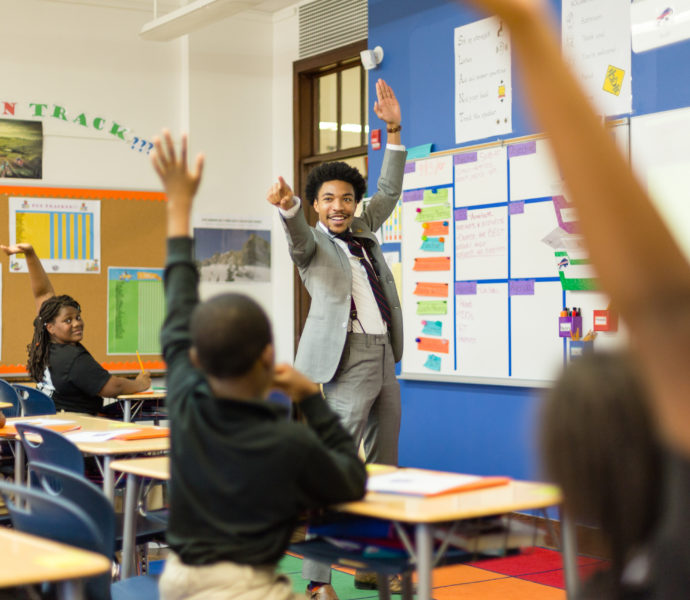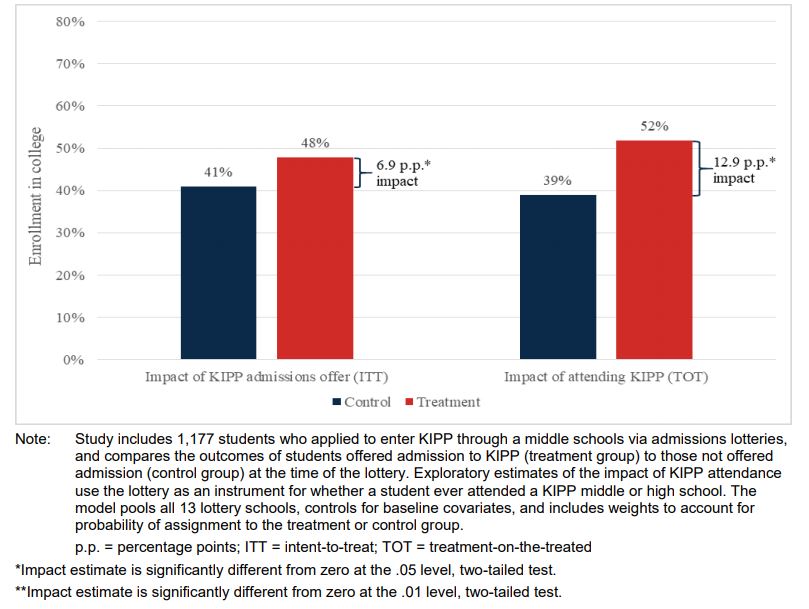KIPP Middle School Students More Likely to Enroll in College, Seek 4-Year Degrees
BySarah D. Sparks
Back in 1994, the first Knowledge Is Power Program schools were created to help more low-income and minority students get to college. Twenty-five years later, the first independent longitudinal evaluation of the nation’s largest charter school network finds it’s meeting that goal.
Students who choose to attend KIPP middle schools are nearly 13 percentage points more likely than their peers to enroll in a four-year degree program after high school, according to a new Mathematica study.
“Finding an impact of that size was really interesting, and I think opens the door to a lot of questions about what will happen in the future for these students,” said Ira Nichols-Barrer, a senior researcher at Mathematica and co-author of the study. “There’s clearly a pathway here that’s working, linking these middle school students’ outcomes to these longer-run outcomes.”
The study follows 1,177 students who applied to 13 KIPP middle schools from 2008-2010. All of the schools were oversubscribed, so enrollment was set by lottery. Researchers tracked students over then next decade, comparing students who did not receive a spot to students who were invited to attend, and then to students who actually attended KIPP. They used data from a federal database of post-secondary students to find which students entered a four-year degree program directly after high school and how many stayed enrolled in college for at least four semesters:

Students who were invited to attend KIPP middle schools were significantly more likely to enroll later in a four-year college even if they chose not to attend, but the benefit was nearly double for students who did attend the schools. Nearly 52 percent of KIPP middle schoolers attended four-year colleges, compared to 39 percent of students who had not been chosen in the school lotteries. There were no differences between the KIPP students and others in whether the colleges they attended were highly selective.
Chrystal Griffin, principal of the KIPP Star Middle School in Harlem, credited her curriculum and teachers’ “one to one feedback to students” with motivating them to go to college.
“We really place a large emphasis on meeting our students where they are and getting them really invested in understanding their role within the larger context of the world,” she said. “Our preteens are far off from college, so we really buy them in with this idea that they can make change [in the world] and have a lot of choices that are going to be open to them if they are able to solidify themselves with certain skills.”
To read the rest of the story click here
